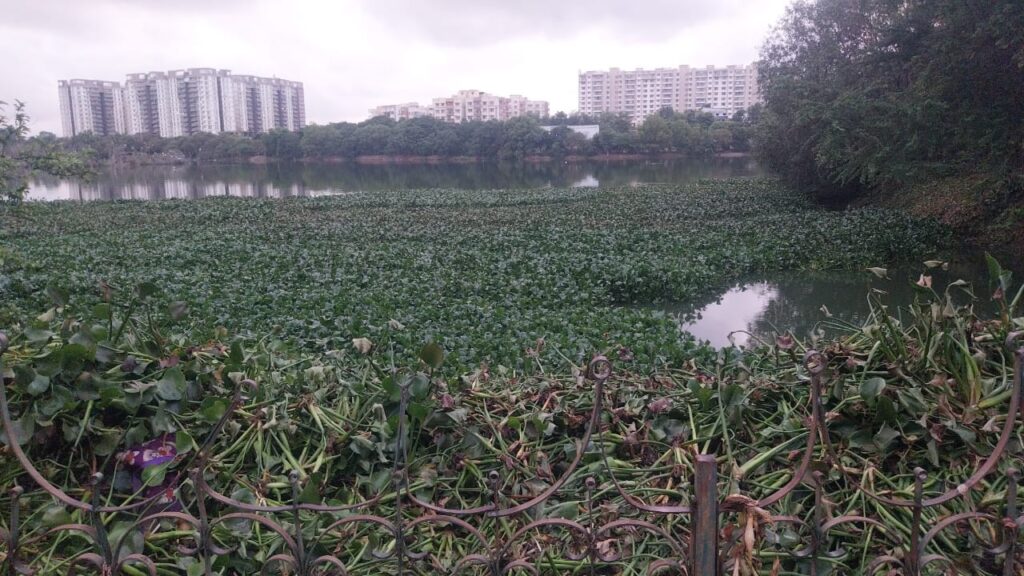Reviving Bangalore Lakes
Bengaluru, historically known as the “City of Lakes,” has witnessed a significant decline in its water bodies due to rapid urbanization and pollution. Recognizing the critical need to address this environmental concern, Kislay has engaged in efforts aimed at rejuvenating these vital ecosystems. His approach emphasizes community involvement, sustainable practices, and the integration of technological solutions to restore the lakes to their former glory.

Kislay Komal, has been actively involved in efforts to conserve and rejuvenate the lakes around Bangalore city. Over the years, Bangalore lakes have faced significant challenges, including illegal encroachment by builders and land developers, the proliferation of invasive hyacinth weeds and the influx of untreated sewage, leading to deteriorating water quality and adverse effects on local biodiversity.
Concerns were raised about the extensive growth of hyacinth covering more than half of the Kaikondrahalli lake’s surface, which threatened aquatic life by obstructing oxygen and sunlight penetration. Kislay highlighted the urgency of the situation, emphasizing the need for immediate intervention to prevent further ecological damage. He noted that the lake had been in disarray due to sewage and untreated water discharge, fostering the growth of invasive plants. He urged the Bruhat Bengaluru Mahanagara Palike (BBMP) to take swift action to clear the weeds and restore the lake’s health.
Further exacerbating the lake’s condition, the construction of a small bridge by the BBMP disrupted the natural water flow, leading to increased stagnation and algal blooms. In August 2023, Kislay expressed concerns over the obstruction caused by the bridge, noting that it hindered regular water movement and contributed to the accumulation of pollutants. The combination of infrastructure development and ongoing sewage inflow resulted in a noticeable decline in the lake’s ecological balance and a reduction in visitor numbers due to the foul odor emanating from the water.

In response to these challenges, Kislay and fellow community members have been proactive in engaging with local authorities, advocating for comprehensive measures to address pollution sources, remove invasive species, and implement sustainable management practices. Their collaborative efforts aim to restore Kaikondrahalli Lake to a thriving ecosystem that supports both wildlife and the well-being of the surrounding community.
Kislay Komal’s unwavering commitment to social welfare, cultural preservation, and community support exemplifies the impact that dedicated individuals can have on society. Through his various initiatives, he continues to make significant strides in empowering marginalized communities and preserving India’s rich cultural tapestry.

